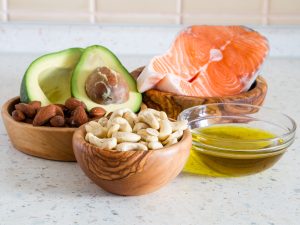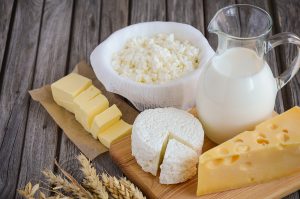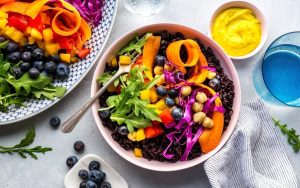
We all know that athletes have a different sort of nutritional needs to meet up. Talking about sports or body building every athlete have a different individualised requirement to fit in according to the goals of fitness level. They require more amount of energy and calories in a day in order to increase their performance and endurance.
If the training of an athlete is 50% then nutrition also plays 50% role in overall training and eating pattern. Having a particular eating pattern helps an athlete to reach the peak of performance. The macronutrient ratios along with essential micronutrients and supplements are a must when we it comes to athletes’ health & fitness.
In any kind of athletic type maybe a sport or a competition, macronutrients play a very vital role in their nutrition. Mainly carbohydrates, proteins, and healthy fats.

Carbohydrates are important fuel or energy for an athlete to increase its efficiency and its endurance. Now the carbohydrate intake for an athlete depends on the intensity of exercise but overall 45-50% of the calories should come from carbohydrate. They can consume good amount of carbs from fresh fruits and vegetables, cereals like quinoa, oats, barley, brown rice, etc.
Proteins can be considered as the king of macros for the athletes because it helps them to increase their muscle mass and actually enhance their training efficiency in a healthier way to build their muscle mass during performance. Proteins aid in muscle recovery & muscle restoration post-training or play. Daily protein intake also depends on their training intensity but generally, 10-35 % of calories of the proteins is required. Generally, they can include first-class sources of protein from lean meat and poultry like chicken, eggs, pork, fish, and dairy products. Plant-based proteins can be worked in a combination to acquire the perfect aminos. For example, beans, lentils, soy, edamame, plant-based milk & whole grains.

Healthy fats are required to maintain their satiety level and also as a fuel source during high energy demands. Healthy fats can be consumed from oily fish, avocados, nuts, and oilseeds.
Some micronutrients should also be kept In mind apart from the main macronutrients like calcium, iron, zinc, B vitamin & vitamin D. These micronutrients work internally to improve the efficacy of the cardio-respiratory system & other organ-related wellness.
Calcium is important for regulation of muscle contraction and also repair of the bones and muscles if after the performance they need nourishment. So consuming calcium food sources works wonders. Main sources are milk and milk products, flax seeds, almonds, green leafy vegetables, green peas etc.
Iron is a common nutritional deficiency that is existing in the athletes . So providing iron rich foods like flax seeds, eggs , dark green leafy vegetables , dried fruits like apricots and raisins , seafoods, garden cress seeds, etc will improve their blood health & will enhance oxygen supply to each & every cell of the body.

Zinc aids in muscle tissue repair and better immune system for better physical performance. The food sources for zinc are beans, meat, legumes like chickpea, and nuts like cashews and almonds and seeds like pumpkin seeds, hemp seeds, sesame seeds, eggs, and whole grains, and oysters
Vitamin B is an important micronutrient for athletes. They help in protein synthesis and maintenance. Important vitamin B sources are milk, dark green leafy vegetables like kale and spinach , lean meat such as chicken, eggs, etc.
According to the many researches on vitamin D status on athletic performance, it is said that low level of vitamin D can have a low impact on performance so taking vital nutrition from vitamin D in the form of natural foods sources or supplements is necessary.
Hydration is a must for athletes because during the performance or playing a sport the core temperature rises and there is a need of more water or hydration for the body. Staying hydrated even during or in routine can help them to increase their stamina and replace the electrolytes.
Therefore, these tips can help an athlete to improve their performance and fulfill their nutritional requirements.
I’d love to learn more about you and how we can work together to get our healthy meals on the table.